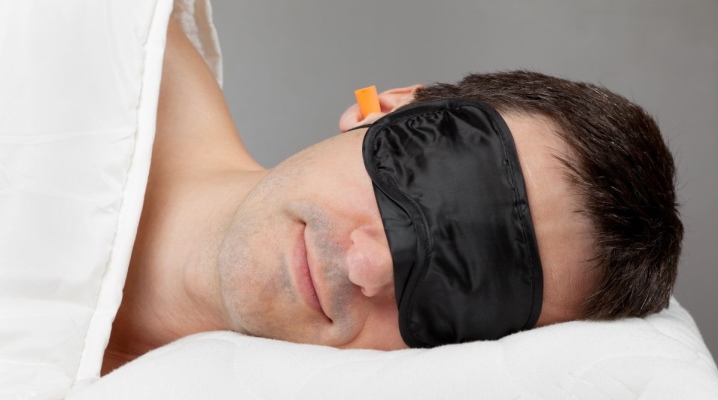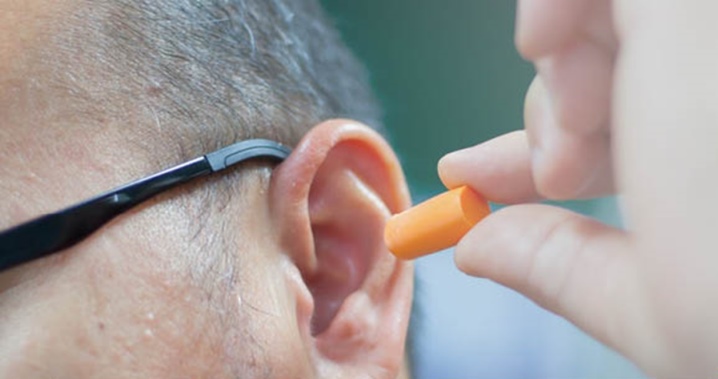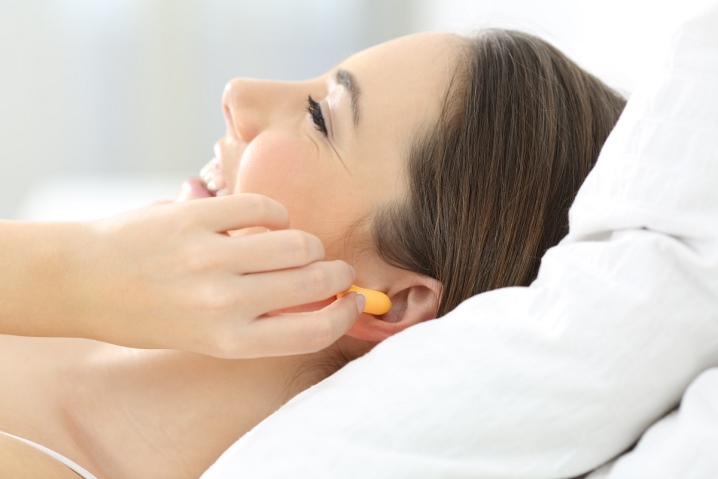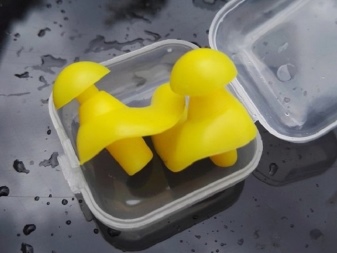Can you sleep with earplugs and why are there restrictions?

The rhythm of modern life forces many to spend a lot of time at work, performing several tasks at the same time. To cope with this kind of work, the body needs good rest at night. But living conditions in apartment buildings imply the presence of extraneous sounds from neighbors, which makes it difficult to sleep especially for people who are sensitive to sound.
Earplugs will help you sleep in complete silence. The use of these devices will protect well from extraneous sounds, and modern materials from which the earbuds are made will not harm the ear canal.
However, if you use earplugs repeatedly for several hours in a row, the question often arises whether such prolonged wearing is harmful to the hearing organs, and whether they are addictive.

The benefits and harms of sleeping with earplugs
If you use earplugs correctly, they will help you fall asleep, as they are able to block most of the extraneous noises and sounds coming from neighboring apartments or a busy highway outside the window. However, high-quality earplugs will allow you to hear the sound of a working alarm clock, a phone call or a triggered machine alarm.
Among doctors there is no definite answer to the question of whether it is possible to sleep in earplugs all night.

Different experts have different opinions about how useful or harmful the repeated use of such remedies is. Among the advantages of using earplugs at night are:
- the ability to quickly achieve silence and get rid of annoying sounds;
- help to reduce the time spent falling asleep;
- modern materials from which sleep earbuds are made exert minimal pressure on the auricle, thereby minimizing discomfort in the ears.

Despite the advantages of using earplugs during sleep, otolaryngologists do not recommend using them every day, being guided by the fact that repeated use of earplugs can lead to unpleasant consequences.

Among the disadvantages of their constant use for sleep, a number of factors are distinguished.
- The emergence of addiction. Some experts are sure that if you use earplugs during sleep for a long time, the ear is able to adapt to such conditions, and over time, extraneous sounds will be heard even while using the earplugs. If a person cannot fall asleep on their own, then there is a sleep disorder that can be cured without resorting to using earbuds.
- The presence of any otolaryngic diseases. Such conditions are a contraindication for using earplugs, since a foreign object in a sore ear increases the risk of developing pathogenic bacteria, which can aggravate the disease.
- Provides a barrier to earwax and prevents its natural elimination. Therefore, thoroughly clean your ear canal before using the earmolds.
- Increase the risk of ear disease... This is due to the fact that dust, specks or plant pollen that gets into the ear can not only accumulate in the ear canal, but also move inward during the insertion of earplugs. A build-up of such contaminants can cause bacteria to grow and lead to ear problems.
- Unpleasant or painful sensations may occur during sleepassociated with excessive pressure of the ear plugs on the auricle.In this case, you need to select the correct size and use only those devices on the packaging of which there is a note about the possibility of their use at night.

How to choose?
You can reduce the possible risks associated with using earplugs at night, as well as reduce discomfort during sleep, if you learn how to correctly select the size and material from which the means of protection against extraneous noise are made. When choosing night earplugs, you need to be guided by several rules.
- Foam or wax earplugs work best for sleeping. Thanks to the soft material, such earplugs do not exert strong pressure, and are also able to change their shape, adjusting to the individual characteristics of the ear canal of a particular person. Therefore, it is possible to get used to such earplugs much faster than to more rigid specimens made of silicone or polyurethane.
- Before purchasing, you must make a visual inspection of the products. They should be free of irregularities, chips, cracks or scratches. If there are even minor damages on the surface of the earplugs, it is better to refuse to buy them, since the skin on the inner surface of the ear canal is very thin, and a poor-quality product will easily damage it.
- Give preference to sets consisting of several pairs. Since the soft material from which night earplugs are made has many pores, pathogenic bacteria can accumulate in them. Such devices require frequent replacement, and specimens made of wax are a one-time option. Therefore, it will be convenient to have a replacement pair if you need to replace them.

Care rules
If wax earplugs are used during sleep, they require constant replacement, as they are intended for single use.
If preference is given to more durable foam products, then they require daily processing after each use.

Processing of earplugs after use should be carried out in several stages.
- Clear earplugs from discharge. To do this, they should be placed in a soapy solution or hydrogen peroxide solution. And also for cleaning, you can use a special disinfectant solution sold in pharmacies.
- Rinse with running water.
- Wipe dry with a soft towel or cotton pad.
- Leave on a clean surface for 1-2 hours to dry completely.
- Remove for further storage in an airtight container.


Thus, having correctly selected the material from which the earplugs are made, you can use these tools in order to fully rest and sleep even in the presence of extraneous noise... And knowing how to properly clean and store earplugs can help protect your ears from possible diseases associated with the growth of bacteria on the surface of the earplugs.
When earplugs cannot be used, see below.













The comment was sent successfully.